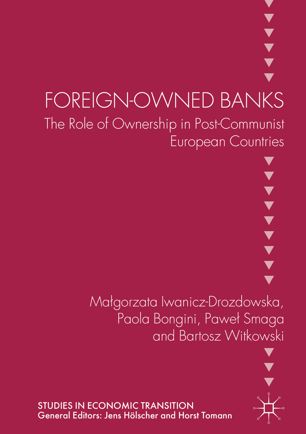

Most ebook files are in PDF format, so you can easily read them using various software such as Foxit Reader or directly on the Google Chrome browser.
Some ebook files are released by publishers in other formats such as .awz, .mobi, .epub, .fb2, etc. You may need to install specific software to read these formats on mobile/PC, such as Calibre.
Please read the tutorial at this link: https://ebookbell.com/faq
We offer FREE conversion to the popular formats you request; however, this may take some time. Therefore, right after payment, please email us, and we will try to provide the service as quickly as possible.
For some exceptional file formats or broken links (if any), please refrain from opening any disputes. Instead, email us first, and we will try to assist within a maximum of 6 hours.
EbookBell Team

4.8
84 reviewsThis book provides an in-depth analysis of the role of foreign-owned banks for credit growth, financial stability and economic growth in the post-communist European countries. Using data covering 20 countries over the period from 1995 to 2015, the authors analyse the evolution of banking sectors in CESEE after the transformation in the historical context. This helps draw a new picture of the role of financial development and EU accession in that region, being also a lesson for other countries or regions in transition. Additionally, as the Global Financial Crisis has left a stigma in banking sectors, the book shows its impact on the post-communist banking sectors. As the foreign banks dominate the banking sectors in CESEE countries (the stake of foreign-owned banks is below 50% of assets in only five out of 20 countries), their strategies materially impact the development of CESEE banking sectors, which warrants our scientific exploration.
Arriving at a clear concluding point of view on the role of foreign-owned banks and providing insights for future policy of CESEEs towards foreign presence in their banking sectors, this book should be of interest to academics, students, and policymakers.